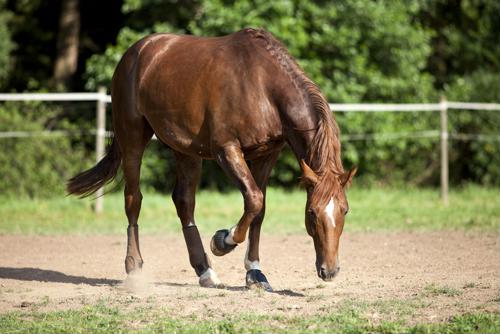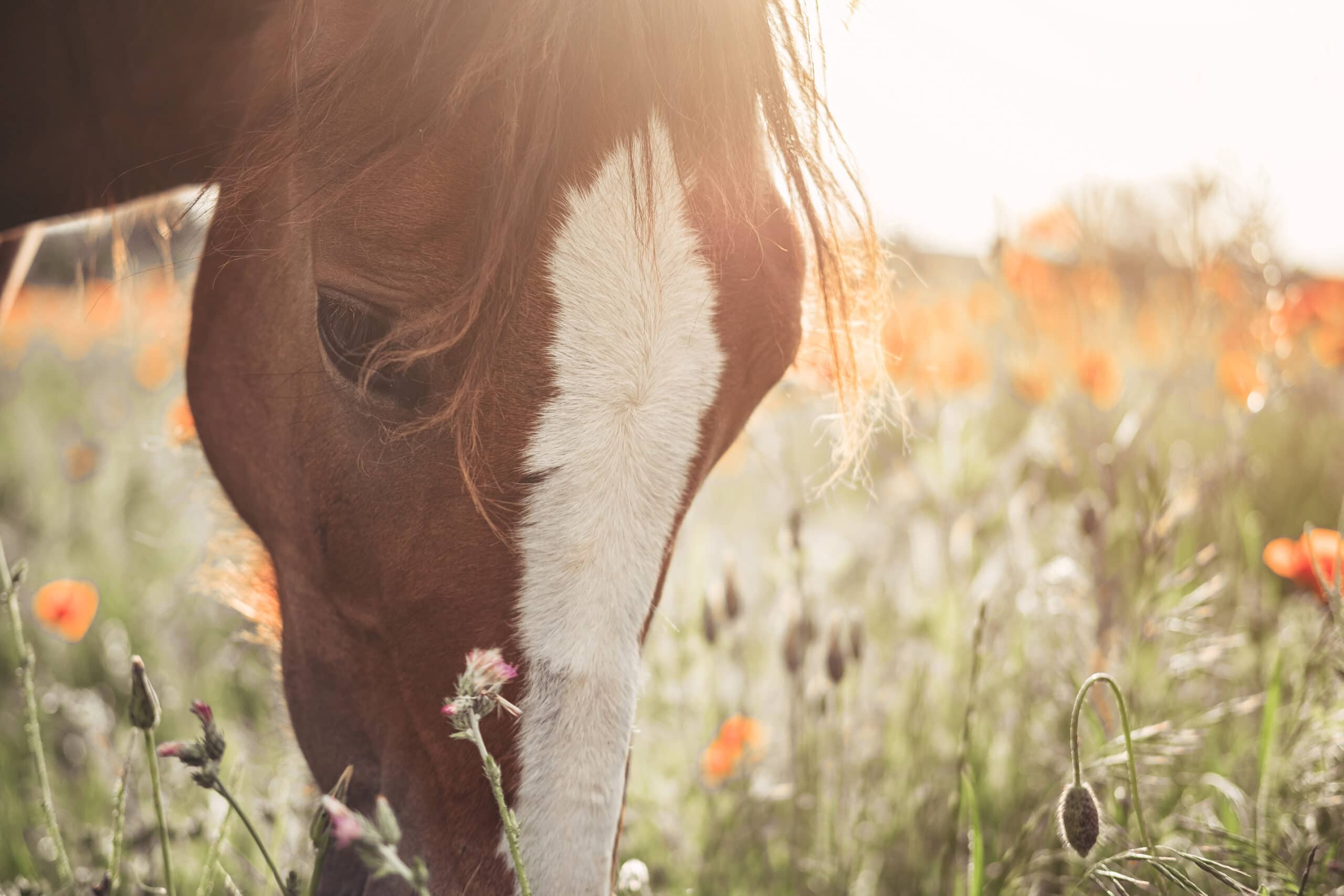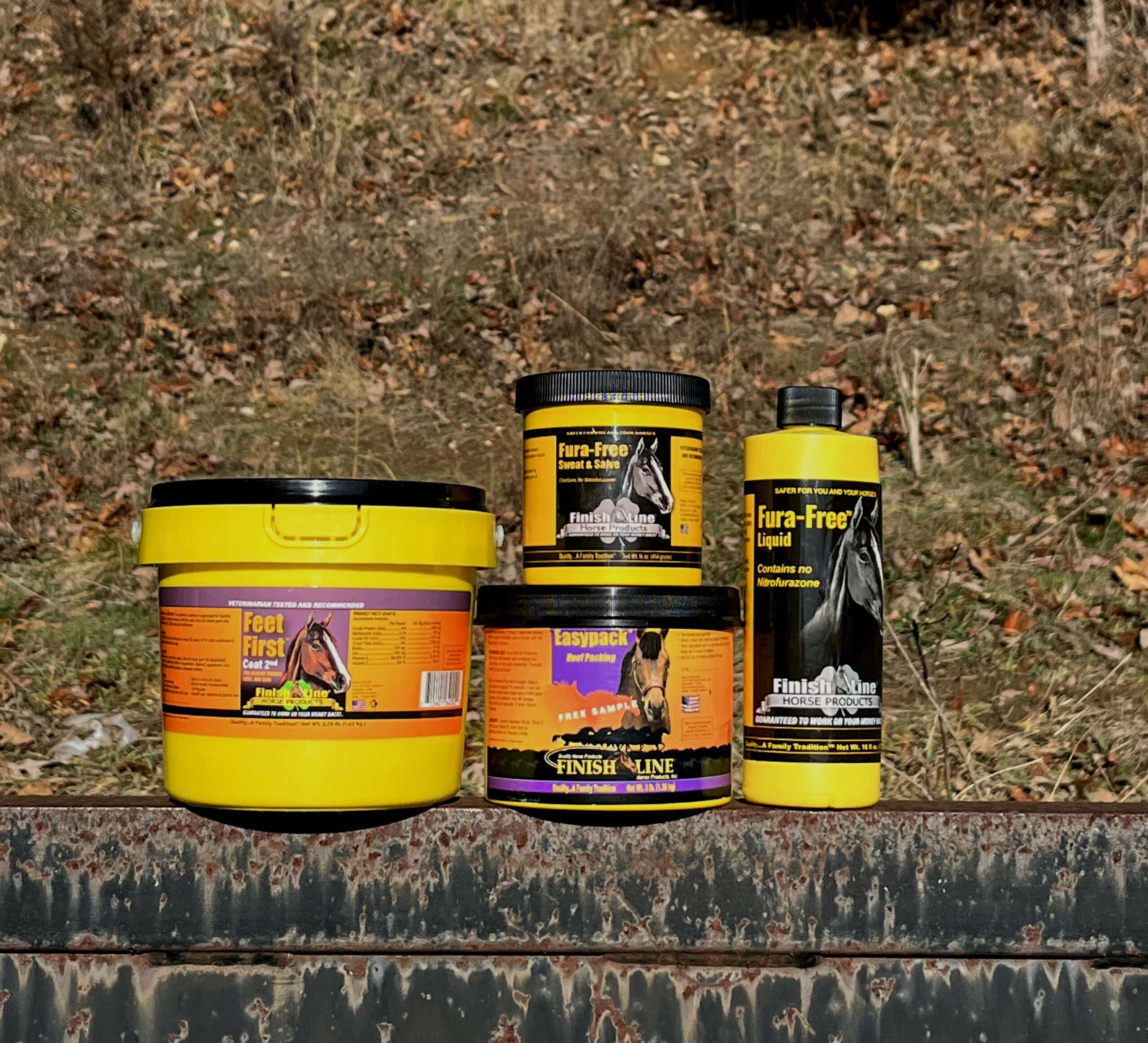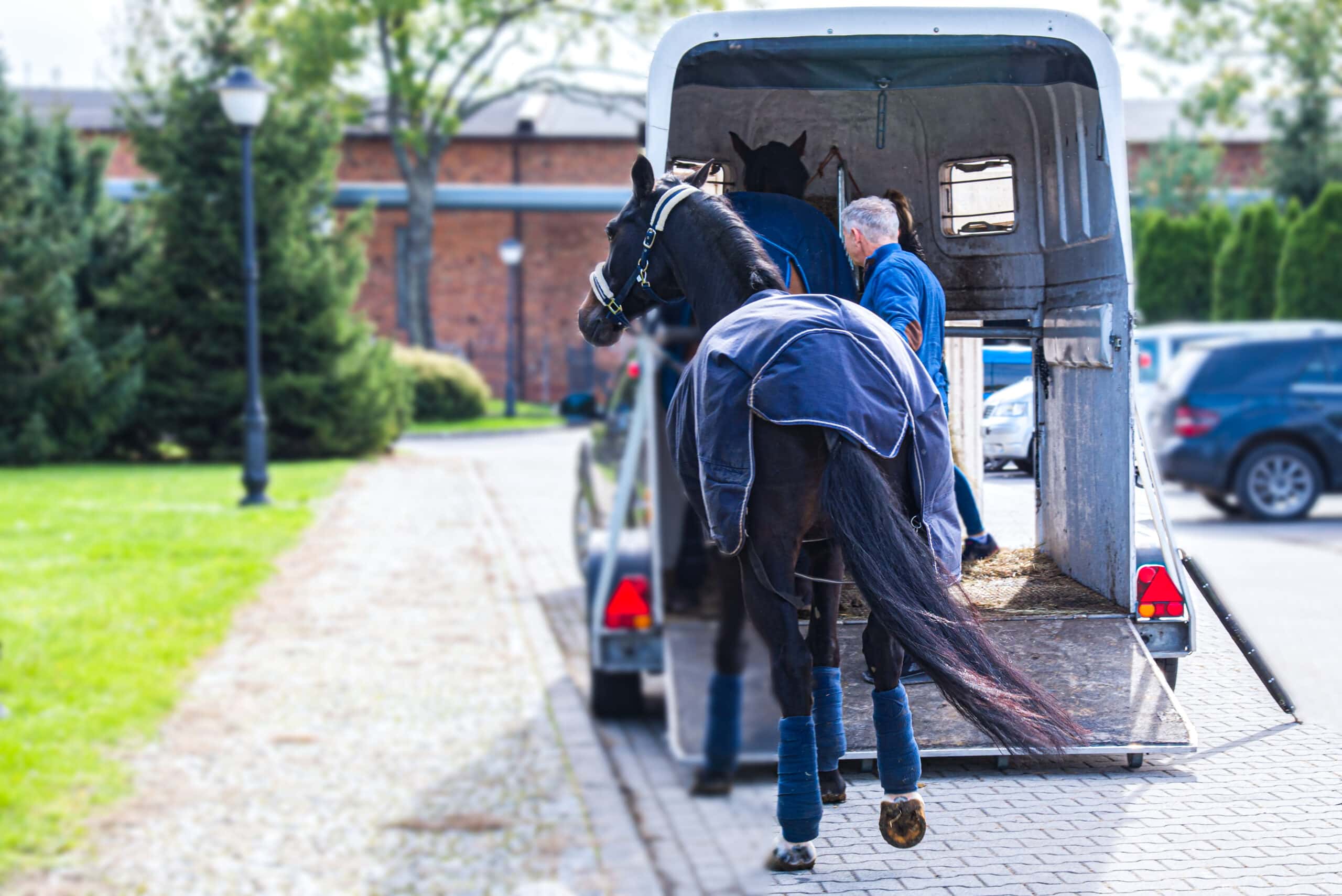Horses, just like any creature, can experience stress due to physical and emotional issues in their lives. As a horse owner and caretaker, it’s your job to understand your animal’s problems and work to alleviate them. As horses are unable to directly tell you what’s wrong, however, you’ll have to decipher what your horse is saying to you through their body language and behavior. Here are five stress behaviors horses often exhibit and how you can relieve them:
1. Reduced appetite and weight loss
“By the time your horse has lost enough weight for you to notice, it has likely been in duress for a while.”
A rapid change in weight or appetite can point to a horse in distress. By the time your horse has lost enough weight for you to notice, it has likely been in distress for a while.
You can shorten this time by taking daily notice of your horse’s eating and drinking habits. If it leaves pelleted feed and hay unfinished or untouched, don’t brush this off. Instead, carry out a careful evaluation of your horse’s surroundings. Overheating can contribute to weight loss, as can unsuitable feed or parasites. Horses may also respond to major changes with aggravations such as moving to a new home, different animals in their surroundings or a significant decrease or increase in workload. Once you’ve identified a potential trigger, take measures and make alterations as necessary. Ease your horse into major changes over time and comfort it vocally or with rewards as needed.
2. Kicking
Kicking and other unusual physical behaviors sometimes indicates a horse is experiencing frustration or impatience. Gentle kicking with another horse in a pasture is usually a method of play, but kicking at humans or hard, direct kicks to another animal should be taken seriously. Identify why your horse is kicking by looking for a few signifiers of distress.
Horses may feel compelled to kick each other when they feel an animal is getting too close to their feed supply or to defend a newborn foal. A mare may also kick at a stallion if she is uninterested in breeding. If this is the case, separate the horses from one another and leave the mare room to care for its foal, especially in the first few days and weeks after a birth.
If a horse kicks out while a person is riding, start by indicating this tendency with a ribbon so other people know to keep their distance. Then you’ll have to train your horse not to panic or act out in anger during a ride. Keep other horses a good distance behind the kicking horse and maintain forward motion. A horse walking at a clip is less likely to kick.
Your horse may also be getting less exercise than it needs. If your horse is kicking or displaying other restless behavior, you may want to give it more time to graze in an open environment and take it on more frequent rides. During this time, train your horse to keep its legs down.
3. Colic
Colic is a fairly common digestive disorder that is characterized by abdominal discomfort. You’ll be able to tell if your horse is colicky if it’s rolling around on the ground, pawing and experiencing digestive issues that make it difficult for the horse to defecate regularly.
In addition to physical causes, horses may develop colic due to emotional worries. A new horse in their presence, a new, rigorous training schedule or a change in handlers can all spark colic. Show horses on a difficult schedule can also suffer from colic due to overwork in a short period of time – this can lead to equine gastric ulcer syndrome, or EGUS, in which a horse develops ulcers, leading to further problems.
To combat colic, you can make a schedule easier on a horse and make sure it gets enough breaks. Also, try using a supplement such as Finish Line’s Ultra Fire, a multivitamin that can be administered daily. If colic persists or worsens, it may be time to call the veterinarian.
4. Body language
Flared nostrils and other subtle changes in your horse’s behavior and body language are strong hints that all is not right with an animal. A horse will often flare its nostrils, tremble, or rapidly swivel its ears when feeling tense or anxious. Other body language indicators include snaking its head from side to side during rides, stomping the ground or clacking its teeth. This last symptom often presents itself in foals when they’re trying to communicate that they are afraid of being hurt.
“Comfort your horse by removing it from the triggering environment.”
When your horse exhibits any of these symptoms, comfort it by removing it from the triggering environment. For example, if another horse is encroaching and your horse begins stomping its hooves, get your animal moving to release some of its irritable energy. Also, stave off a brewing conflict by increasing the distance between the two equines. Or, if your horse is grinding its teeth or trembling, give it vocal and physical comfort with gentle pats and making sure it gets proper exercise.
Horses that are new to giving rides to a rotating group of people, such as those at equestrian centers, may be overwhelmed by the large and changing group of humans it is being exposed to. Introduce a horse to these and other environmental changes slowly and reassure the animal that it can relax around new people.
5. Excessive bowel movements
Horses in discomfort will often produce excessive amount of manure over a short period of time. Both physical and psychological strain can contribute to a difference in bowel movements or urination. Horses that are feeling anxious or overwhelmed may also urinate more often. On the other hand, horses may have trouble urinating when they’re afraid and feeling unable to relax. If your horse is having bowel issues, try giving it some room to breathe and more time in pasture where it can relax and graze. This is especially important if a horse is adjusting to changes in its routine.
If you notice your horse is having more bowel troubles when in the company of other animals or multiple humans at once, you can also return it to a more comfortable environment such as its stall or pasture.
Even the most attentive horse owners may one day find their animal in a troubled state of mind or body. Horses are highly sensitive creatures that respond to their surroundings in ways that humans or other animals may not. By taking the time to notice and address physical and psychological problems, you can help your horse live a happy, healthy life.









